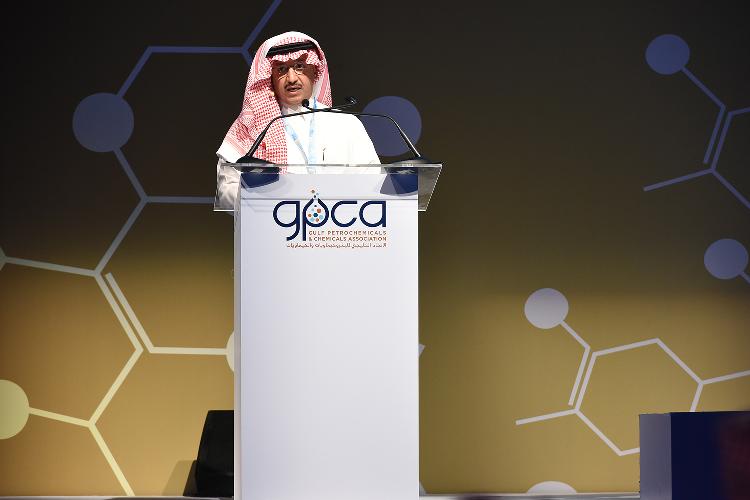
COMPETITIVENESS KEY TO CAPTURING INCREASED SHARE OF GLOBAL PETROCHEMICAL MARKET
In a keynote address, Yousef A. Al-Benyan, SABIC Acting Vice Chairman and CEO, told an industry conference that the Gulf petrochemical industry can grow its share of the global market, but must increase its competitiveness in order to do so.
“For the industry, the global outlook is strong,” Al-Benyan said. “SABIC projects Ethylene demand growing three percent annually between now and 2035.
“We in the Middle East can grow our share of that market, but we will need to increase our competitiveness.”
Al-Benyan delivered his remarks at the 10th Annual Forum of the Gulf Petrochemicals & Chemicals Association (GPCA). He also serves as vice chairman of the GPCA.
He told the assembled industry leaders that while the volatility of the oil markets and the overall global economy were important influences on the industry, the challenges it faces are structural in nature: a fast-changing competitive landscape, increasing petrochemical self-sufficiency in several major markets, and a changing landscape in global trade relations.
The energy renaissance in the United States is one of the most significant developments the industry has faced in recent years. This burst of production is conferring considerable price-side advantages on US-based crackers.
“Right now, Middle East crackers are the most competitive in the world,” he said. “US crackers in the shale era are no longer high-cost producers. Instead, they are now the most competitive in the world outside of the Middle East.”
But perhaps the greatest challenge Gulf-based producers face is the changing terms of global trade. As major trade agreements such as the Trans-Pacific Partnership are concluded – with others in negotiation – Gulf-based producers are left exposed to the decisions made by the major trading blocs.
As a result, Companies could improve their business operations to make them more efficient. They can increase their investment in innovation and technology, as well as diversify into downstream manufacturing, which creates more jobs than commodity plants. Finally, they must invest in talent development and management for a business that is increasingly technical and demands a highly trained workforce.
These and other steps can help ensure that the Gulf-based petrochemical sector continues as a source of prosperity and employment in a region facing one of the world’s greatest youth unemployment challenges.
“The petrochemical industry here in the GCC region has a proud history and many superb achievements,” he said. “We who are here today have a moral obligation to ensure that industry’s future is as exciting and path-breaking as its past.”


























